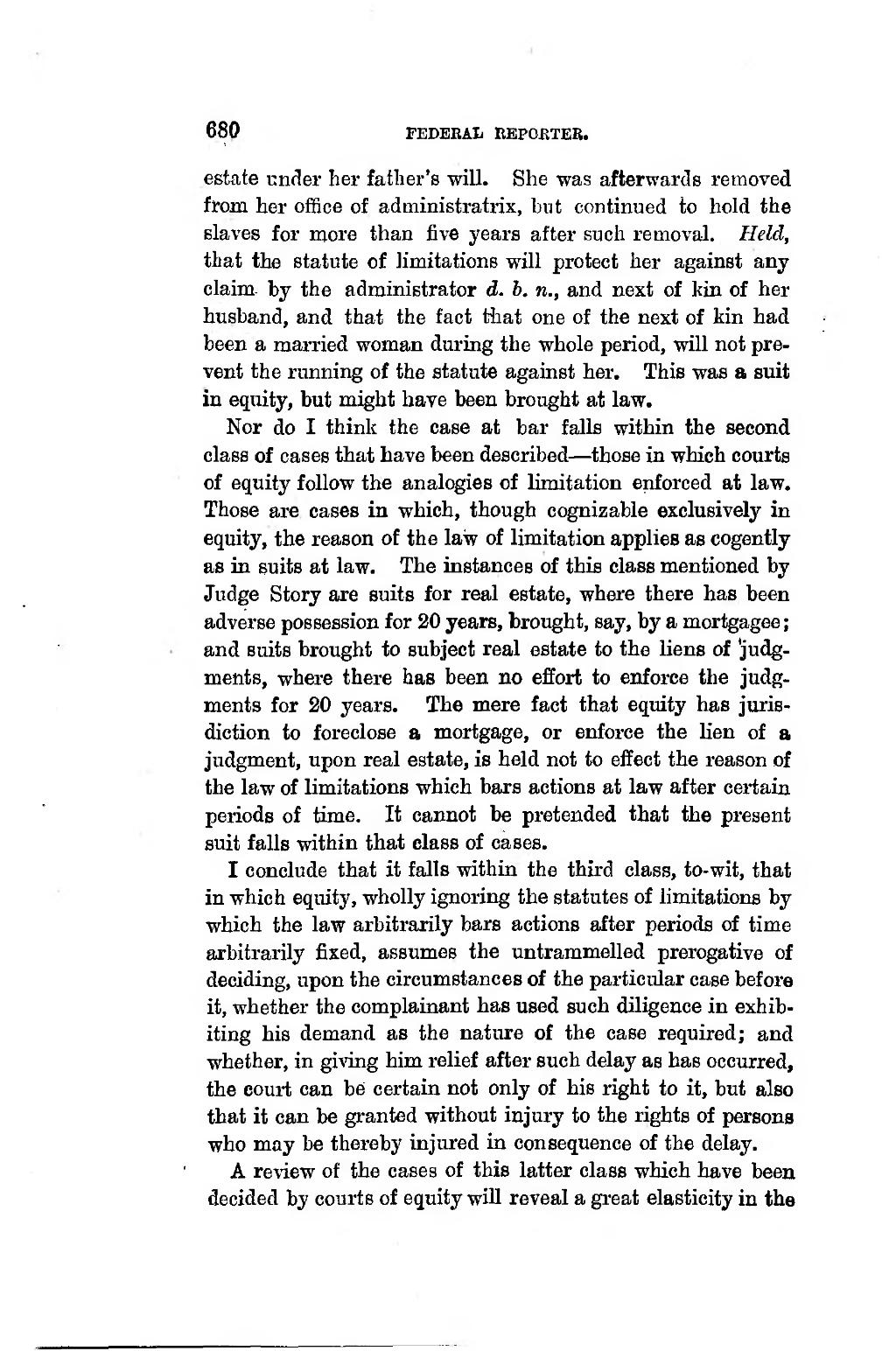680 FEDBBAL REPOKTER. �estate unrler her father's -will. She was afterwarcls removed from her office of administratrix, but continued to hold the slaves for more than five years after such removal. Helcl, that the statuts of limitations will protect her against any claim by the administrator d. h. n., and next of kin of her husband, and that the fact tiiat one of the next of kin bad been a married woman during the whole period, will not pre- vent the running of the statute against her. This was a suit in equity, but might bave been brought at law. �Nor do I think the case at bar falls within the second class of cases that bave been described — those in which courts of equity foUow the analogies of limitation enforced at law. Those are cases in which, though cognizable exclusively in equity, the reason of the law of limitation applies as cogently as in suits at law. The instances of this class mentioned by Judge Story are suits for real estate, where there has been adverse possession for 20 years, brought, say, by a mortgagee ; and suits brought to subjeot real estate to the liens of judg- ments, where there has been no effort to enforce the judg- ments for 20 years. The mere fact that equity has juris- diction to foreclose a mortgage, or enforce the lien of a judgment, upon real estate, is held not to eiïect the reason of the law of limitations which bars actions at law after certain periods of time. It cannot be pretended that the present suit falls within that class of cases. �I conclude that it falls within the third class, to-wit, that in which equity, wholly ignoring the statutes of limitations by which the law arbitrarily bars actions after periods of time arbitrarily fixed, assumes the untrammelled prerogative of deciding, upon the circumstances of the partioular case before it, whether the complainant has used such diligence in exhib- iting his demand as the nature of the case required; and whether, in giving him relief after such delay as has ocourred, the court can be certain not only of his right to it, but also that it can be granted without injury to the rights of persona who may be thereby injured in consequence of the delay. �A review of the cases of this latter class which have been decided by courts of equity will reveal a great elasticity in the ����
